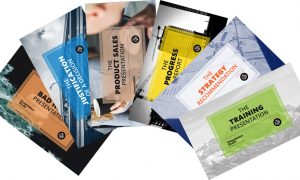7 Reasons Why You Should Always Arrive Early for Your Talk


Delivering a speech or presentation is a stressful enough experience for most people, and anything we can do to reduce those anxiety levels and raise our confidence can only help to improve our performance. In this article John Zimmer gives us 7 good reasons why he always arrives early for his speaking engagements and why you should too.
Recently I was hired by a major consumer products company to give a one-hour interactive keynote at an offsite retreat for 150 members of its purchasing department. The topic was improvisational theatre (“improv”) and how its principles can be applied in business. (I have been doing improv for the past six years with a Geneva-based group known as the Renegade Saints.)
My speaking slot was ideal: 11:30 to 12:30, just after the morning coffee break and just before lunch. The client told me that it would be fine if I showed up during the 25-minute coffee break, as it would give me plenty of time to set up. Notwithstanding the kind offer, I politely declined and informed my client that I would be arriving for the 8:30 welcome coffee.
I always arrive early for a speaking engagement and you should too. If you are someone who likes to arrive at the latest possible time, here are seven reasons why you should change your approach and start arriving early.
1) You will save yourself travel stress
The event was held at a beautiful hotel on the shore of Lake Geneva, about 20 kilometres from my home. I knew that I would be driving against the traffic heading into Geneva for the work day, but there is a lot of road work being done right now, and there is always the possibility of an accident along the main routes. I wanted to give myself plenty of time.
In the end, the traffic was fine. I arrived at the hotel at 8:15, completely relaxed.
Similarly, whenever I have to fly for a speaking engagement, which is fairly frequently, I always try to travel the day before. Flight delays and cancellations are an unfortunate, but inevitable, part of travelling and I want to make sure that I have enough buffer time to react to unforeseen events and make alternative plans.
2) You can prepare the room
Prior to the event, I had reviewed the floor plan of the room in which I was going to speak. I always visit the room where I will be speaking well in advance of the event. When that is not practical, I try to look at photos of the room or at least a floor plan to get a sense of the speaking environment.
Still, you never know what you will find on the day. Fortunately, most things were in place when I arrived and there was little to do. Nevertheless, there were a few things such as placing a chair I would need for one exercise, clearing a space on a small table for my water and watch, and figuring out how to raise the blinds to allow more natural light in the room for my session.
3) You can meet the technician
Whenever you speak at an event, the technician is your best friend.
The technician is the person who can help ensure that things run smoothly from a logistical perspective. He or she knows the onsite technology and how you can make the best use of it.
When you arrive early, you have the time to introduce yourself to the technician and have a chat. And because you have time, you don’t have to rush to talk about your presentation. You can find out a bit about them, where they are from, what their interests are, things like that. Simple but meaningful stuff that helps build a foundation for a good working relationship. Technicians always appreciate speakers who show genuine interest in them and, as a result, always go the extra mile for them.
At my event, I discovered that the technician was born in France from Algerian descent. When I worked in the United Nations, I did a lot of work in the Middle East and so learned Arabic. He thought it very cool that we were able to have a short conversation in his mother tongue and we hit it off from the start.
4) You can test your equipment
Have you ever sat in the audience for a presentation and seen the speaker struggling to get his laptop connected to the beamer (projector) with only minutes to go before start time? It’s uncomfortable for an audience and incredibly stressful for a speaker.
When you arrive early, you have the time to test things and make sure they work. And if they don’t, at least you have time to try alternatives or switch to Plan B. (You do have a Plan B when you speak, right?)
On this occasion, I decided not to use any slides, so that was one less thing to deal with. However, the client had slides to guide us through the day, including one to introduce me. It was great to have the slide up while I was being introduced, but I did not want it up during my performance. So I showed the technician the simple trick of hitting the “B” key during a PowerPoint presentation to turn the screen black without having to turn off the beamer.
5) You can test the microphones
Microphones are indispensable when you speak to large audiences. Nothing is more frustrating for an audience member than having to strain to hear what the speaker is saying. Microphones help ensure that your message reaches everyone.
But microphones can be temperamental, so you need to do a proper sound check. Your new best friend (the technician) can help in this regard. If the microphone is a lapel clip-on or headset, the technician can help you place it correctly, attach the battery pack and hide the connecting wire. The technician will also ensure that the batteries are charged and show you how to mute and un-mute the microphone.
At my event, there were two lapel mikes and two handheld mikes. Given a choice, I always opt for a microphone that leaves my hands free so I went with the lapel mike. However, one of the two mikes was a bit unstable with a poorer quality of sound. After testing them both, I knew which one was the best.
To test the microphone, I had the technician walk to different parts of the room and signal when the volume was good. It allowed me to know how to position the microphone on my shirt and how loud to speak. It also allowed him to fine-tune the sound from the main control panel.
Because my keynote was interactive, I had people come up on stage from time to time. They too had to be able to project their voices and they had to use the handheld mikes. Because I went early, I was also able to test those mikes and learn how to turn them on and off quickly, thus conserving the battery.
6) You can meet the people
As a speaker, you want to connect with your audience. The stronger the connection, the greater the impact. Why wait until you are on stage?
You can start building rapport with your audience before.
When you arrive early, you can meet at least some of the members of your audience. Just go and introduce yourself. When they find out that you are the speaker, they will be happy to chat with you for a bit. After all, they are there to hear you speak.
I was able to speak with almost 20 people during the welcome breakfast and subsequent coffee break. When it was my time to take the stage, it was nice to look out and see a few familiar (and smiling) faces.
7) You can listen to the speakers before you
Listening to the speakers before you is one of the best things that you can do. Why? Three reasons:
- If you sit at the back of the room, you can get a feel for the acoustics and lighting and make any necessary adjustments for your presentation.
- You can gauge the mood of the room. Is there good energy? Are people excited or are they lethargic? Fortunately, my audience was revved up the whole time.
- The other speakers might say things that are relevant for your presentation. In such case, take notes and names and see if you can incorporate them into your talk.
At my event, I was told that I didn’t have to sit in on the team reports because they probably would not be interesting for me. But the team reports were exactly what I wanted to hear and I am glad that I did.
There were six short (5-minute) reports presented by teams of two or three. Many of the speakers talked about innovation or creativity or teamwork, all of which was directly relevant for my keynote on improv. In fact, one of the speakers, who did not know what I was going to talk about, said that improvisation is a key part of business strategy!
This was excellent because I was able to work several of those statements into my presentation. Thus, when it was my turn to speak, I would be going through my material and from time to time would say something like, “As X said earlier this morning …” and link it to my point. People came up to me afterwards to tell me how impressive they thought it was.
Even though it is a relatively easy thing to do, it does look impressive because it shows that you are paying attention; it involves people; and it makes your talk even more relevant.
Most speakers will just stick to their script, but if you can improvise and refer to other speakers, you will look sharp.
So there you have it. Seven reasons why you should always arrive early for a speaking event. The last thing you want to be doing is scrambling with some issue at the last minute. Get there early, make sure everything is working, meet the people and deliver a dynamite talk.
If you liked this, you might also like
10 Tips for… Setting Up on the Day
5 Most Common Tech Problems for Presenters and How To Avoid Them
6 Essential Steps To Get The Best Conference Introduction
How To Get Your Audience Back On Time – 10 Simple Solutions
10 Essential Items For The Presenter On the Go











